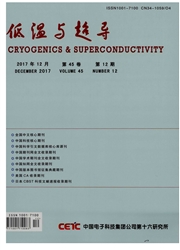

 中文摘要:
中文摘要:
本试验利用焓差实验室构建空调器实际使用环境,对相同条件下的定频、变频空调器的性能进行对比试验研究。试验数据表明:在室内温度27℃、设定温度相等的条件下,室外温度从29℃到41℃每增加3℃:(1)定频空调器制冷量平均降低约1.64%,最大可降低2.2%,变频空调器制冷量平均降低约1.3%,最大降低1.87%,变频空调器受室外温度影响较小,制冷效果更加稳定;(2)定频、变频空调器输入功率平均增加2.55%和4.16%,输入功率最大增加率分别为4.34%和7.74%,室外温度对变频空调器输入功率影响较大;(3)定、变频机运行过程中耗电量相同时的时间将延后38.3%,变频机需要更长的时间才能体现出节能优势。
 英文摘要:
英文摘要:
The experimentations of performance of constant - speed air - conditioner and variable - speed air - conditioner were conducted and tested by Enthalpy difference lab under the same experimental conditions. When the indoor temperature of Enthalpy difference lab was 27℃, the outdoor temperature of Enthalpy difference lab increased from 29℃to 41 ℃ by the temper- ature gradient 3℃. The tested air - conditioner was run at the same setting point temperature. The experimental results showed that the cooling capacity of constant - speed air - conditioner was reduced from 1.64% to 2.2% ; similarly, the cooling capacity of variable - speed air - conditioner was reduced from 1.3% to 1.87%. The input power of constant - speed air - conditioner was increased from 2.55% to 4.34% ; similarly, the input power of variable - speed air - conditioner was reduced from 4.16% to 7.74%. The outdoor temperature of Enthalpy difference lab had a significant influence on the input power of air conditioner. The time when the power consumptions of constant - speed air - conditioner and variable - speed air - conditioner were same was delay by 38.3%. The variable - speed air - conditioner needed more time to reflect the advantage of energy saving.
 同期刊论文项目
同期刊论文项目
 同项目期刊论文
同项目期刊论文
 期刊信息
期刊信息
